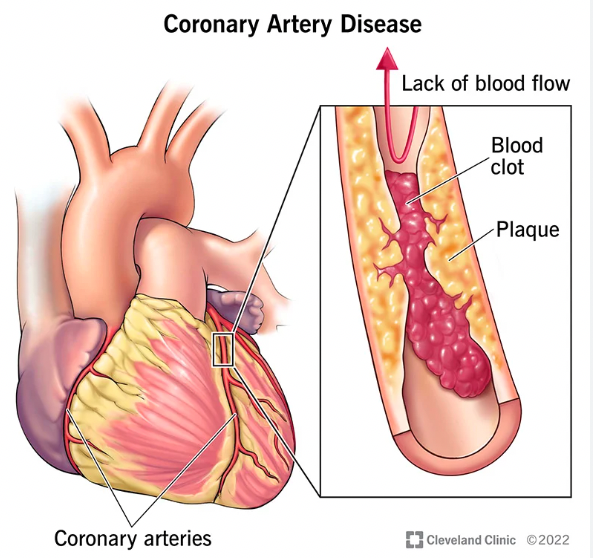Coronary Artery Disease (CAD) Treatment in India
Find the best clinics for Coronary Artery Disease (CAD) Treatment in India
No pricing info available
Russian Federation offers the best prices Worldwide
Price: $ 911
From 67 verified reviews
Yashree Gandhi, 18 April 2020
Best care & facilities. Cooperative staff. Very much impressed. Thanks Team.
From 165 verified reviews
Manish Sharma, 16 September 2020
Great prices. Honest doctor's. They do not pay referrals or commissions to your doctor and are hence not usually referred to by leading cardiologists of the city. Very safe for Covid times as they seek a double test before admission. Finally, they are expensive but they gave me enough pre-information on what to expect.
From 153 verified reviews
Shabaaz Mansoori, 07 August 2020
Wockhardt Hospitals are one of the tertiary care, super speciality healthcare networks in India offering healthcare services. The chain of hospitals is owned by the parent company Wockhardt Hospitals Ltd.[1], India's 5th largest Pharmaceutical and Healthcare company with a presence in 20 countries across the globe.[2] Wockhardt hospitals, originally called First hospitals and Heart Institute, were one of the early movers among corporate health-care chains in India. The company was established in 1989 and it started its first operations with a medical center in Kolkata, 1989 and a heart hospital in Bangalore two years later. Today the company has its presence across India with 9 multi speciality hospital networks.
Jindal hospital and heart centre muktsar, located in Sri Muktsar Sahib, Punjab, India offers patients Coronary Artery Disease (CAD) Treatment procedures among its total of 27 available procedures, across 1 different specialties. Currently, there's no pricing information for Coronary Artery Disease (CAD) Treatment procedures at Jindal hospital and heart centre muktsar, as all prices are available on request only. There is currently a lack of information available on the specialists practicing at the Hospital, and they are accredited by IMA - Indian Medical Association
SevenHills Hospital, located in Bombay, Mumbai, India offers patients Coronary Artery Disease (CAD) Treatment procedures among its total of 362 available procedures, across 22 different specialties. Currently, there's no pricing information for Coronary Artery Disease (CAD) Treatment procedures at SevenHills Hospital, as all prices are available on request only. There are many specialists available at the Hospital, with 19 in total, and they have multiple recognized accreditations, including: JCI AccreditedNABH
WHY US?
At Medijump, we're making medical easy. You can search, compare, discuss, and book your medical all in one place. We open the door to the best medical providers worldwide, saving you time and energy along the way, and it's all for FREE, no hidden fees, and no price markups guaranteed. So what are you waiting for?

Free

Best Price

Widest Selection

Risk-Free
What you need to know about Coronary Artery Disease (CAD) Treatment in India

Coronary Artery Disease (CAD) Treatment is a conventional method employed to counter Coronary Artery Disease (CAD) - a disease resulting in reduced blood flow in the arteries. This method involves the utilization of angioplasty or stents to unblock obstructed arteries, thereby enhancing blood circulation. Gaining insight into the procedural details, potential hazards, and after-care measures is fundamental to achieving a beneficial outcome. Find a creditable clinic in your India.
What is the cost of Coronary Artery Disease (CAD) Treatment in India?
The financial burden of the Coronary Artery Disease (CAD) Treatment in India spans a diverse range, influenced by factors such as the treatment type, the patient's condition severity, any existing health issues, and the kind of medical institution. The medication's cost, for instance, could be relatively low, while the charges for surgical procedures may scale up significantly. Yet, these disparities notwithstanding, a majority of health insurance providers afford coverage for CAD treatments, thereby making them accessible to a broad spectrum of individuals.
What does a Coronary Artery Disease (CAD) Treatment Procedure Involve?
In India, the Coronary Artery Disease (CAD) Treatment is administered through detailed and precise treatment strategies. The procedure commonly encompasses a mix of medications, lifestyle modifications, and occasionally surgical procedures. The medication might be formulated with antiplatelet drugs, drugs lowering cholesterol, beta-blockers, calcium channel blockers, nitrates, and angiotensin-converting enzyme (ACE) inhibitors. For acuter cases, surgical interventions such as angioplasty, stent placement, coronary artery bypass surgery (CABG), or minimally invasive heart surgery may be necessary.
How Long Should I Stay in India for a Coronary Artery Disease (CAD) Treatment Procedure?
The length of residence in India for a Coronary Artery Disease (CAD) Treatment typically rests on the intricacies of the treatment plan. If the regimen includes a surgical procedure, the stay could span several weeks, encompassing pre-operative evaluations, the surgery itself, and the recuperation period post-surgery. The entire timeframe will also involve routine follow-up visits to oversee progress and manage potential postoperative complications. Adhering to your doctor's instructions is key to ensuring a hassle-free stay and successful recuperation.
What's the Recovery Time for Coronary Artery Disease (CAD) Treatment Procedures in India?
The recovery time for Coronary Artery Disease (CAD) Treatment procedures in India relies on numerous elements including the nature of the treatment, the individual's general health condition, and adherence to post-treatment guidelines. Patients under medication therapy can anticipate gradual betterment spanning weeks to months. Conversely, if a surgical procedure is performed, the recovery could range from several weeks to a few months. By incorporating lifestyle modifications such as consistent exercise and a nutritious diet, this process can be hastened.
What sort of Aftercare is Required for Coronary Artery Disease (CAD) Treatment Procedures in India?
Post-surgical aftercare subsequent to a Coronary Artery Disease (CAD) Treatment procedure in India is crucial to the recuperation journey. This may involve regular medical appointments, medication modifications, and adherence to lifestyle alterations like sustaining a nutritious diet, staying physically active, quitting smoking, restricting alcohol consumption, and managing stress effectively. Constant interaction with healthcare providers and dedication to self-care can considerably impact both the recovery speed and success.
What's the Success Rate of Coronary Artery Disease (CAD) Treatment Procedures in India?
Coronary Artery Disease (CAD) Treatment procedures in India boast a commendable success rate, attributed to the progression in medical technology and refined health care protocols. A large number of patients witness considerable symptomatic relief and enhanced quality of life following the treatment. However, the precise success rate may fluctuate among individuals, influenced by factors such as general health, the severity of the condition, the treatment type, and dedication to altering lifestyle habits.
Are there Alternatives to Coronary Artery Disease (CAD) Treatment Procedures in India?
Indeed, Coronary Artery Disease (CAD) Treatment procedures in India do have alternatives which could involve modifications in lifestyle, medicinal therapy, or sometimes, supplementary treatments. For example, practices like yoga, meditation, and other mindfulness exercises can assist in stress management, playing a vital part in managing CAD. Nonetheless, prior to beginning any new treatment scheme, it's critical to converse about these alternatives with your healthcare provider.
What Should You Expect Before and After the Procedure
Prior to the Coronary Artery Disease (CAD) Treatment, anticipate multiple diagnostic examinations to evaluate the intensity of your condition and devise a suitable treatment strategy. After the procedure, expect a recuperation and adjustment phase. This might include dealing with possible side-effects, incorporating lifestyle modifications, and having routine appointments with your healthcare provider to monitor progress.
What are the Risks Associated with Coronary Artery Disease (CAD) Treatment in India?
Like any therapy, there may be possible risks. For instance, medicinal treatment could prompt side-effects like allergic reactions or conflicts with other medications. Surgical procedures might pose hazards like infections, bleeding, or complications due to anesthesia. However, developments in health technology have considerably reduced these risks. Engaging in a discussion about possible risks and appropriate mitigation measures with your healthcare provider is of utmost importance.
What are the Long-term Effects of the Coronary Artery Disease (CAD) Treatment?

The majority of patients witness considerable symptom improvement and enhanced overall life quality post-treatment. Nevertheless, dedication to enduring lifestyle modifications is usually crucial to curb the risk of disease advancement. These transformations might include adherence to a heart-friendly diet, regular participation in physical activities, quitting smoking, stress management, and consistent medication compliance. Ample information and appropriate guidance from the healthcare provider can assist the patient in traversing this long-term journey towards health and well-being.
Is there a Possibility of Recurrence after the Coronary Artery Disease (CAD) Treatment?
CAD is a chronic condition, and although its symptoms can be managed effectively, there isn't a total cure. Consequently, there could be a chance of a relapse, especially if lifestyle alterations are not sustained. To diminish the likelihood of a recurrence, it's crucial to stick to medication schedules, observe a heart-nourishing diet, partake in regular physical activities, quit smoking, control stress, and maintain blood pressure, cholesterol, and diabetes within healthy levels.
Whilst the information presented here has been accurately sourced and verified by a medical professional for its accuracy, it is still advised to consult with your doctor before pursuing a medical treatment at one of the listed medical providers
No Time?
Tell us what you're looking for and we'll reachout to the top clinics all at once
Enquire Now

Popular Procedures in India
Prices Start From $2,000

Prices Start From $1

Prices Start From $820

Prices Start From $4,391

Prices Start From $1,078

Recommended Medical Centers in India for Coronary Artery Disease (CAD) Treatment

- Interpreter services
- Translation service
- Religious facilities
- Medical records transfer
- Medical travel insurance
- Health insurance coordination
- TV in the room
- Safe in the room
- Phone in the room
- Private rooms for patients available

- Interpreter services
- Translation service
- Religious facilities
- Medical records transfer
- Medical travel insurance
- Health insurance coordination
- TV in the room
- Safe in the room
- Phone in the room
- Private rooms for patients available

- Interpreter services
- Translation service
- Religious facilities
- Medical records transfer
- Medical travel insurance
- Health insurance coordination
- TV in the room
- Safe in the room
- Phone in the room
- Private rooms for patients available

- Interpreter services
- Translation service
- Religious facilities
- Medical records transfer
- Medical travel insurance
- Health insurance coordination
- TV in the room
- Safe in the room
- Phone in the room
- Private rooms for patients available

- Interpreter services
- Translation service
- Religious facilities
- Medical records transfer
- Medical travel insurance
- Health insurance coordination
- TV in the room
- Safe in the room
- Phone in the room
- Private rooms for patients available

- Interpreter services
- Translation service
- Religious facilities
- Medical records transfer
- Medical travel insurance
- Health insurance coordination
- TV in the room
- Safe in the room
- Phone in the room
- Private rooms for patients available

- Interpreter services
- Translation service
- Religious facilities
- Medical records transfer
- Medical travel insurance
- Health insurance coordination
- TV in the room
- Safe in the room
- Phone in the room
- Private rooms for patients available

- Interpreter services
- Translation service
- Religious facilities
- Medical records transfer
- Medical travel insurance
- Health insurance coordination
- TV in the room
- Safe in the room
- Phone in the room
- Private rooms for patients available

- Interpreter services
- Translation service
- Religious facilities
- Medical records transfer
- Medical travel insurance
- Health insurance coordination
- TV in the room
- Safe in the room
- Phone in the room
- Private rooms for patients available

- Interpreter services
- Translation service
- Religious facilities
- Medical records transfer
- Medical travel insurance
- Health insurance coordination
- TV in the room
- Safe in the room
- Phone in the room
- Private rooms for patients available





